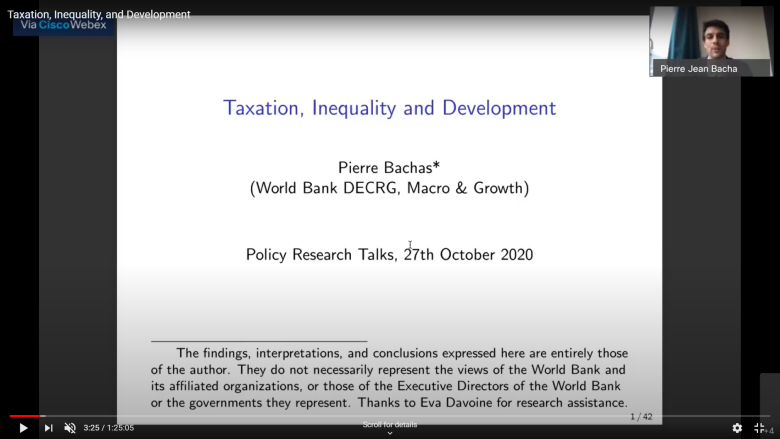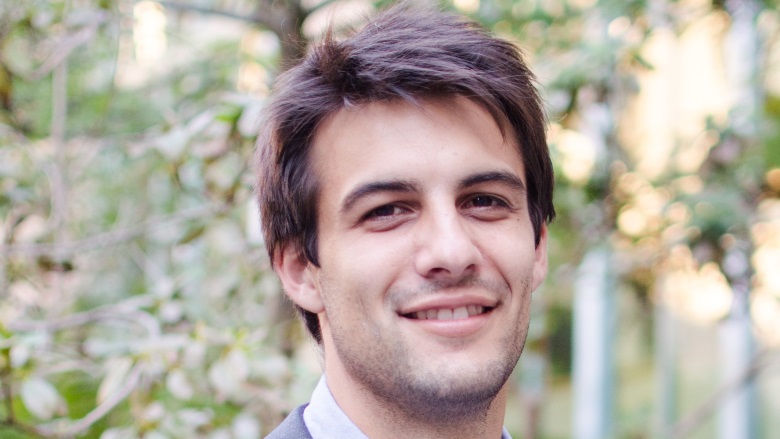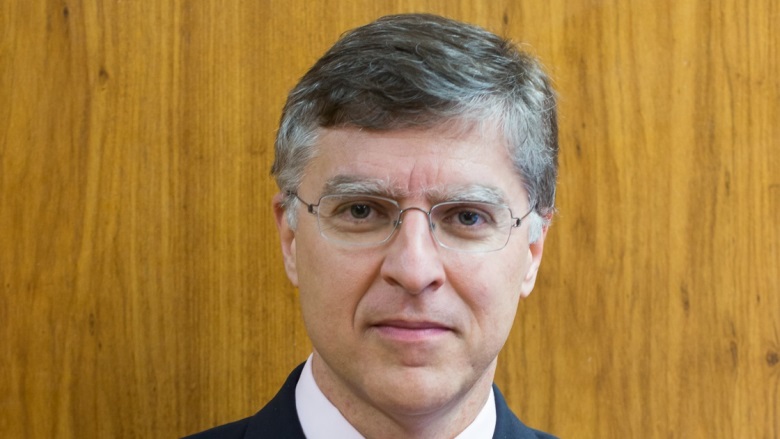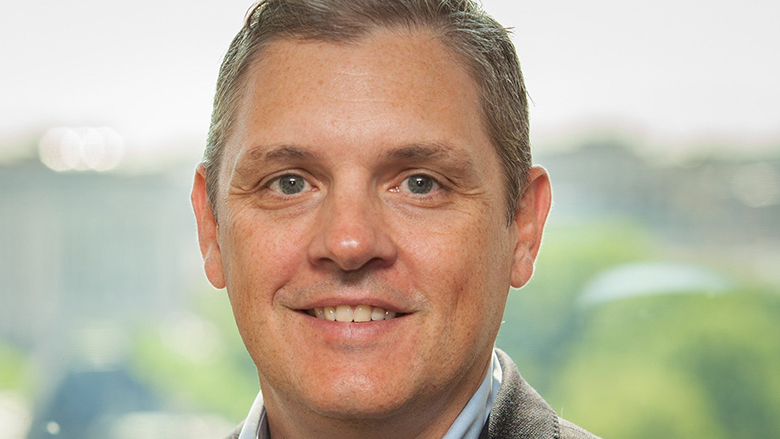View the Presentation (PDF)
Taxation, Inequality, and Development
October 27, 2020
Youtube
MULTIMEDIA

Taxation, Inequality, and Development
-
Low tax revenue collection limits the capacity of the state to provide public goods and invest in human capital, redistribute income, and insure against shocks. Although domestic revenue mobilization has increased in the past two decades, many low-income countries still collect less than 20 percent of their GDP in taxes, a level which is insufficient to address their citizens’ needs.
In this Policy Research Talk, World Bank economist Pierre Bachas will discuss the differences in tax structures across countries and sketch some of the frontiers of research in this area. In an economy characterized by small-scale production and self-employment, taxation needs to factor in administrative feasibility, and thus optimal policies can vary markedly. He will illustrate the implications of these differences for growth and inequality using results from two recent papers. The first shows that in poorer countries tax enforcement falls disproportionately on large firms and estimates the loss in production from size-dependent enforcement. The second paper presents evidence that, once we account for the informal retail sector, taxes on consumption can be progressive, and discusses the implications for their optimal design.
The talk will conclude with a discussion of some of the challenges lying ahead to make tax systems more efficient and redistributive, and how improved administrative data and new technologies can help provide solutions.
-
-
The monthly Policy Research Talks showcase the latest findings of the World Bank’s research department, challenge and contribute to the institution’s intellectual climate, and re-examine conventional wisdom in current development theories and practice. These talks facilitate a dialogue between researchers and operational staff and inform World Bank operations both globally and within partner countries. Read More »
EVENT DETAILS
- TIME: 11:30AM - 1:00PM ET
- CONTACT: Michelle Chester
- mchester@worldbank.org


